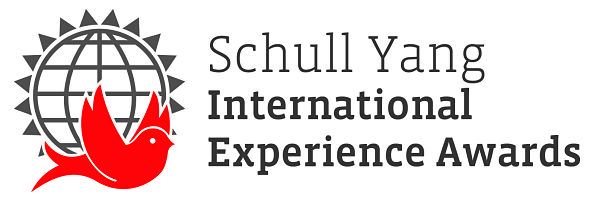
Schull Yang International Experience Awards, supported by Joseph Schull (BA ‘82, MA ’85) and Anna Yang (BCL, LLB ’88), help undergraduate and graduate students gain first hand international experience related to their fields of study. The award provides full or partial funding to assist students with tuition, travel, and other expenses related to their international experience. Schull Yang International Experience Awards are part of the McGill International Experience Awards.
In the Faculty of Science, Schull Yang International Experience Awards support Science students (B.Sc. or B.A. & Sc.) pursuing full-time international summer undergraduate research experiences. (Students from other faculties: start here.)
Key points about eligibility and selection criteria: The Faculty of Science normally gives preference to: returning undergraduate students; students who have completed at least 9 credits at the 300 level or higher; projects of 12-16 weeks; projects in countries where the student has not lived before. We expect to favour projects that feature international travel and in-person activities, with a backup plan for remote work; fully remote projects are expected to receive low priority. The international experience is an important part of a successful application, not just the research proposal.
The Faculty of Science invites applications from all eligible candidates, and especially those who are members of underrepresented groups, including Women, Persons with Disabilities, Indigenous People, Racialized people/Visible Minorities, and LGBTT2SQ* People (sexual orientation and/or gender identity minorities).
How can you apply in 2023?
- Choose your host institution! Maybe your future interests involve a graduate program of study not offered at McGill, and you want to experience that institution's academic life! Or perhaps, for your particular scholarly interest, the top researchers are located outside Canada. Maybe you have always wanted to discover some other particular country.
- Note that we will also consider placements hosted at institutions that are comparable to universities (such as certain research institutes or teaching hospitals).
- Supervisors at Canadian universities, including McGill, are eligible. We may give preference as follows: first to supervisors from international universities/research institutes, then to the McGill Faculty of Science, then to other McGill Faculties, and finally to supervisors from other Canadian universities.
- Find a professor (or equivalent) who wants you to join her or his research group.
- Some students make connections with professors directly, on their own; much of the advice for getting involved in research at McGill will also apply.
- Sometimes McGill professors connect students to their research collaborators abroad.
- You might make a connection through an external program organised by another university, funding agency, or scholarly society.
- Agree upon a research project. All Schull Yang International Experience projects must be high-quality and meaningful experiences.
- What is the proposed project? What will you actually be doing? How will supervision work?
- Consult your supervisor about this part.
- Confirm project duration (intended start and end dates) with your research supervisor. 16 weeks maximum; 12-16 weeks preferred; under 12 weeks requires explanation.
- The target value will be $7000.
- The actual value will depend on project duration and budget availability.
- The award is paid by the generosity of Schull Yang funds. Supervisors are encouraged but not required to provide a small top-up, if their budgets permit.
- Tell us about yourself, why you are applying, and how this experience would be international and transformative for you.
- We will ask what you hope to gain from of your proposed project.
- The international experience is key to this award, so here are some suggestions: international supervisor, international collaboration, international mentorship, the scope of the project, and/or other elements of the experience. Your experience must address the international element; it is not enough simply to choose a research topic of international significance. Strong applications will demonstrate the international element in both the in-person and remote versions of the project.
- There are many ways and reasons to seek an international experience: which are yours? Why this project? Why this destination or host institution? How does it connect your past experiences with your future plans? How would your international experience impact your community and field of study? What is your community involvement?
- Review the application form and apply online!
- The form provides more information about eligibility.
- The deadline to apply online with guaranteed consideration was Wednesday, March 1, 2023, 12:00 noon, Montreal time.
- Subject to availability of funding, applications received after this deadline may be evaluated (on a rolling basis).